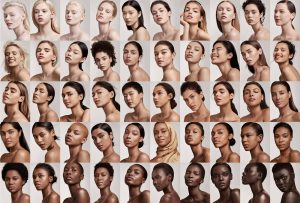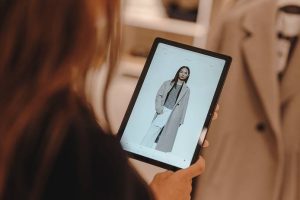Fashion is a dynamic and fast-paced industry that requires creative and innovative minds. Passion for design is essential. But formal education can provide every student with the needed skills. It can give them knowledge and connections. They demand them to succeed in this competitive field. Fashion education offers students the opportunity to learn the business side of mode. It helps develop their design skills and gain real-world experience. We will explore how education can prepare every student for the future of fashion design.

Fashion Education Preparing Students For Careers in the Fashion Industry
Fashion business courses
Design is the creative aspect of the industry. Mode courses cover various topics, including style marketing, merchandising, and management. By learning about the industry:
• Trends;
• Marketing strategies;
• Consumer behavior.
Students can develop a deep understanding of the business landscape. This knowledge can be invaluable when it comes to launching:
• A brand;
• Managing a fashion business;
• Pursuing a career in mode marketing or merchandising.
Future of design
The mode industry is developing. Learners who want to work in pursuing careers in design must stay up-to-date on the latest:
• Trends;
• Technologies;
• Techniques.
Fashion education can provide pupils with access to cutting-edge design software. It can help with workshops and mentorship programs. Such education develops their design skills. Students experiment with different fabrics and techniques. They create innovative designs that stand out in the industry.
Working in the fashion industry requires English to be at an international level. And if you study it, but due to the lack of time you devote to fashion, you may need more time to complete all the tasks. Fortunately, everyone can get english assignment help to get their work done on time. The best part is that pupils don’t need to worry about the quality and uniqueness of the assignment. This way, they can spend their free time learning fashion. After graduation from mode school, students can be well-equipped to design unique clothing and accessories. And they won’t only be stylish but also functional and sustainable.
Real-world experience
Fashion education can also provide every student with valuable real-world experience. Many programs offer opportunities for internships, co-ops, and study abroad programs. These experiences allow students to work with industry professionals. They can gain practical skills and develop their portfolios. Students who have real-world experience are often more competitive in the job market. They are better prepared to launch their brands.
Examples and research
Fashion education has already proven to be valuable. It’s essential to prepare students for careers in the Vogue industry. According to a study, 85% of retailers believe that fashion education is necessary for a job. 60% said they prefer hiring candidates with a degree in style-related fields. Some notable designers, including Marc Jacobs, Alexander McQueen, and Tom Ford, have formal education in industry background.
Campus Life
Fashion education is not only about classroom learning but also about campus life. Many design schools offer students opportunities to take part in fashion:
• Shows;
• Design competitions;
• Networking events.
These events allow students to showcase their work. They can connect with industry famous people and build their professional networks. Design education should also promote inclusivity and diversity in its curriculum and faculty. It includes teaching students about fashion history and culture from a global perspective. Also, hiring faculty members from diverse backgrounds. Such education should encourage creativity and innovation. The fashion industry is evolving. Students need to be able to think outside the box and come up with new and innovative ideas. Fashion education can prepare students to be leaders in the industry. It drives forward recent trends and ideas.
Keep up with the trends
The Vogue industry continues to grow. Fashion education must keep up with the latest trends and developments. One way to achieve this is by incorporating technology. They have become an integral part of the fashion industry. Students need to learn how to use it. It includes using software such as CAD (Computer-Aided design). It can help create designs. They also learned about e-commerce and online marketing strategies.
This way, students will be better equipped to succeed in the digital age. Another important aspect of fashion education is sustainability. The style industry is notorious for its environmental impact. There are steps to reduce it. By teaching students about sustainable fashion practices, such as:
• Using materials;
• Implementing ethical manufacturing processes;
• This education can play a role in promoting a more feasible industry.
Hands-on experience
Design education should also focus on providing students with experience in the industry. Educational institutions can achieve it through:
• Internships;
• Fashion shows;
• Collaborations with brands.
Through practical experience, students can apply knowledge to real-world situations.
It needs to be accessible to students from diverse backgrounds. It includes scholarships for students who need help to afford traditional education.
Conclusion
Fashion education is crucial in preparing students for careers in the Vogue industry. With courses in the fashion business, students can gain skills. They will need new knowledge and connections to succeed in this dynamic field. Whether students want to do this in the future, education can help them achieve their goals.

fashionabc is a fashion technology platform, comprising a digital directory and various other digital tools and supply chain solutions for the fashion industry ecosystem, that focus on ethical fashion and sustainability. We are building inclusive digital transformation tools for fashion professionals who are willing to take steps towards a more sustainable ethical fashion industry, by adopting AI and DLT blockchain technology.
* building digital profile and IP solutions for fashion businesses
* tackle issues such as provenance and counterfeit in supply chain
* contribute to the construction of a meritocratic ethical fashion industry which is certified and part of the circular economy











